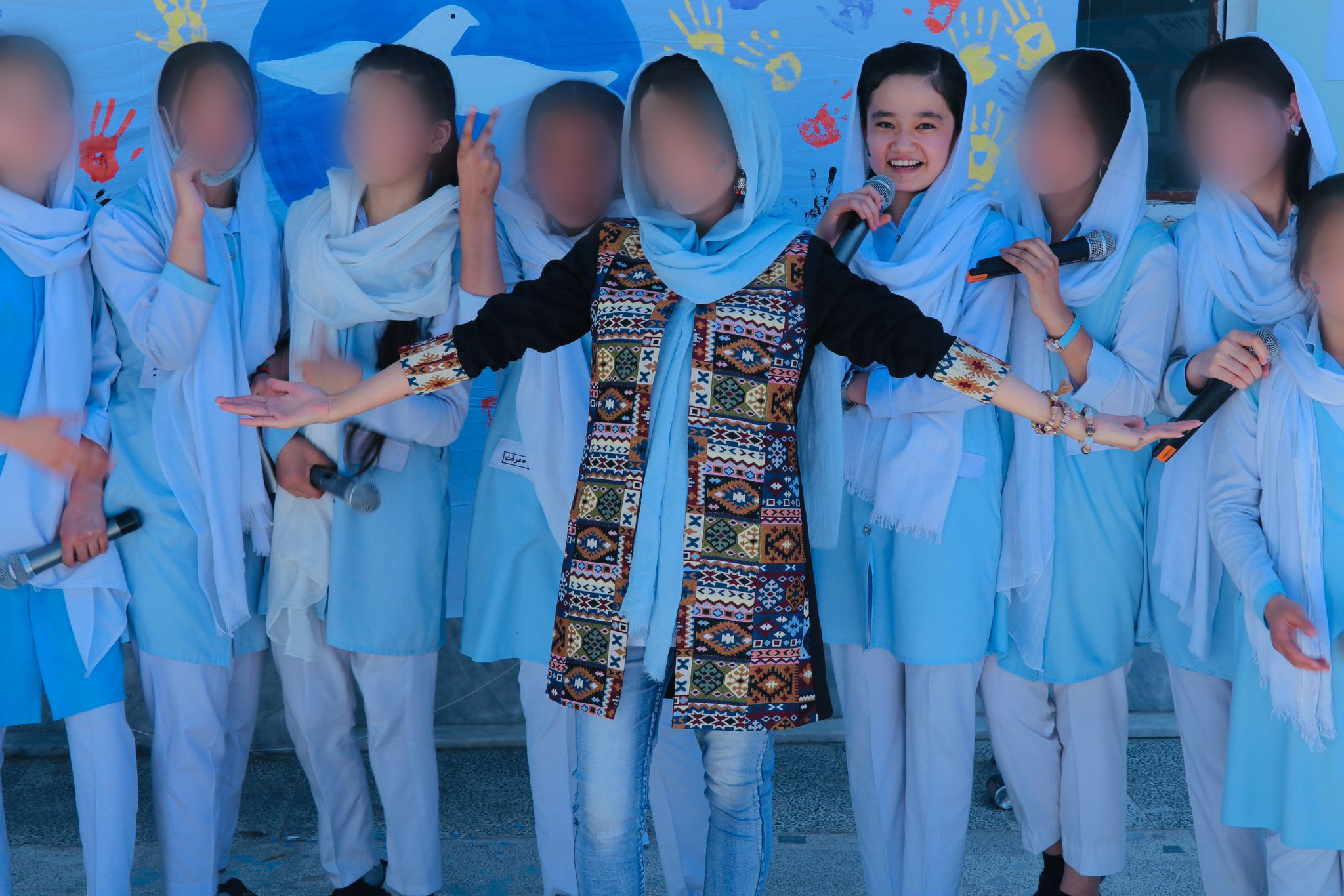
This week, Nila Ibrahimi accepted the International Children’s Peace Prize that recognised her work fighting to champion the rights of Afghan girls and women.
When the Taliban introduced a law that banned girls over the age of 12 from singing, Nila recorded a protest song as part of the #IAmMySong campaign, where Afghan girls and women recorded themselves singing. Within weeks, the ban was overturned. In recognition of her work, Nila was awarded the International Children’s Peace Prize this week.
Earlier this year, in an essay for Malala Fund's Assembly, Nila shared her experience of being an Afghan singer and the urgency of amplifying and celebrating Afghan women’s voices. We're proud to see Nila gain the recognition she deserves. Read her essay republished here.
Originally published on Assembly on March 6, 2024.
Growing up, I have always had a deep passion for music. I was part of the Sound of Afghanistan where we sang songs about various issues, with women’s rights being one of them. Observing my siblings pursue singing as their hobby, I became intrigued by the meanings behind pitch, melody, and rhythm. That became the reason for my excitement to sing.
As nervous as I would get when performing on stage over time I discovered the power of my voice.
When we sang songs about different topics, including education, I realized we were normalizing these ideas in our community. We were on a path of bringing change to our community, until, one day, I heard that the Ministry of Education banned schoolgirls over the age of 12 from singing in public.

It was the first time I had to stand up for my rights. I was furious, yet determined to take action to stop this injustice. Singing was my way of protesting against unfair societal norms, and I could not let them silence me and my fellow teammates.
After posting a video on social media of me singing a song and encouraging other girls to join me, it took a few weeks until the decision was reversed. It was then that I realized the importance of speaking up.
After the sudden takeover of Afghanistan in 2021, we were forced to leave the country and seek refuge in Pakistan. While in Pakistan, I spent my time teaching English online through various organizations to add to my own knowledge and that of others in Afghanistan.
As we were refugees with no status in Pakistan, I had no access to education myself. Having no access to education came with feelings of doubt; about whether the world cared about the crisis we were going through, or whether we were even seen or heard. More than a year passed until we managed to make it safely to Canada with the help of the Thirty Birds Organization.
“I realized a long time ago that even though the Taliban are trying to limit girls so they do not have a say in the decisions made in the country, we should help in any way that we can.
Upon arriving in Canada, I recognized the opportunities and chances I had to speak up for my fellow Afghan girls who couldn't. That's why I decided to speak up. Since then, I have addressed issues surrounding women's rights in global conferences such as the Geneva Summit for Human Rights and Democracy, as well as the House of Lords. These experiences have taught me that there are always people ready to help if we keep raising awareness.

Then, I realized more Afghan girls should be allowed to share their stories. More stories mean more lessons to be taught. So, after working on my project for a while, I, along with my team, started HerStory — an initiative for girls to share their life stories of courage, resilience, and hope. I started HerStory to help build awareness of issues Afghan girls are facing for Western audiences; especially Gen-Z. I realized a long time ago that even though the Taliban are trying to limit girls so they do not have a say in the decisions made in the country, we should help in any way that we can. Through HerStory, I am sure that we can change the perception of the future leaders of the world about Afghanistan and Afghan girls.

Now, my only hope for my country and Afghan girls is education. Education is the only way out of the thousands of problems Afghanistan faces as a country, and it is dire that half of the population is not allowed to go to school. However, I am optimistic that they will rise above, for when they have the opportunities to flourish, their potential knows no bounds.